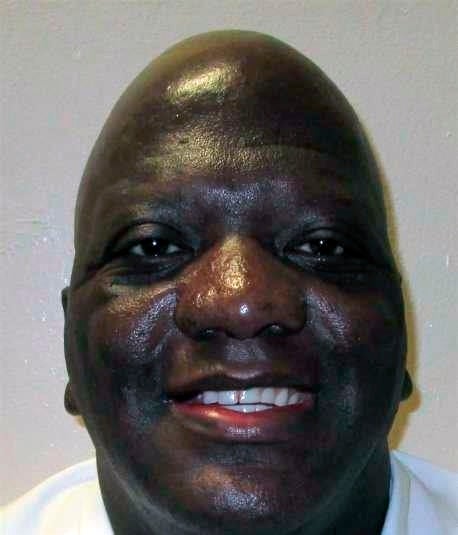Religion and the death penalty collide at the Supreme Court
The Supreme Court is sending a message to states that want to continue to carry out the death penalty

Your support helps us to tell the story
From reproductive rights to climate change to Big Tech, The Independent is on the ground when the story is developing. Whether it's investigating the financials of Elon Musk's pro-Trump PAC or producing our latest documentary, 'The A Word', which shines a light on the American women fighting for reproductive rights, we know how important it is to parse out the facts from the messaging.
At such a critical moment in US history, we need reporters on the ground. Your donation allows us to keep sending journalists to speak to both sides of the story.
The Independent is trusted by Americans across the entire political spectrum. And unlike many other quality news outlets, we choose not to lock Americans out of our reporting and analysis with paywalls. We believe quality journalism should be available to everyone, paid for by those who can afford it.
Your support makes all the difference.The Supreme Court is sending a message to states that want to continue to carry out the death penalty: Inmates must be allowed to have a spiritual adviser by their side as they are executed.
The high court around midnight Thursday declined to let Alabama proceed with the lethal injection of Willie B. Smith III. Smith had objected to Alabama's policy that his pastor would have had to observe his execution from an adjacent room rather than the death chamber itself.
The order from the high court follows two years in which inmates saw some rare success in bringing challenges based on the issue of chaplains in the death chamber. This time, liberal and conservative members of the court normally in disagreement over death penalty issues found common ground not on the death penalty itself but on the issue of religious freedom and how the death penalty is carried out.
Justice Brett Kavanaugh one of three justices who said they would have let Smith's execution go forward, said Alabama's policy applies equally to all inmates and serves a state interest in ensuring safety and security. But he said it was apparent that his colleagues who disagreed were providing a path for states to follow.
States that want to avoid months or years of litigation over the presence of spiritual advisers “should figure out a way to allow spiritual advisors into the execution room, as other States and the Federal Government have done," he wrote in a dissent joined by Chief Justice John Roberts. Justice Clarence Thomas also would have allowed the execution of Smith, who was sentenced to die for the 1991 murder of 22-year-old Sharma Ruth Johnson in Birmingham.
Alabama had up until 2019 allowed a Christian prison chaplain employed by the state to be physically present in the execution chamber if requested by the inmate, but the state changed its policy in response to two earlier Supreme Court cases.
Robert Dunham, the executive director of the Death Penalty Information Center, says the court's order will most clearly affect states in the Deep South that have active execution chambers. Dunham said most state execution protocols, which set who is present in the death chamber, do not mention spiritual advisers. For most of the modern history of the U.S. death penalty since the 1970s, spiritual advisers have not been present in execution chambers, he said.
The federal government, which under President Donald Trump resumed federal executions following a 17-year hiatus and carried out 13 executions, allowed a spiritual adviser to be present in the death chamber. The Biden administration is still weighing how it will proceed in death penalty cases.
The court's order in Smith's case contained only statements from Kavanaugh and Justice Elena Kagan.
“Willie Smith is sentenced to death, and his last wish is to have his pastor with him as he dies,” Kagan wrote for herself and liberal justices Sonia Sotomayor and Stephen Breyer, as well as conservative Amy Coney Barrett. Kagan added: “Alabama has not carried its burden of showing that the exclusion of all clergy members from the execution chamber is necessary to ensure prison security.”
Justice Neil Gorsuch and Justice Samuel Alito did not make public their views, but at least one or perhaps both of them must have voted with their liberal colleagues to keep Smith's execution on hold.
The court's yearslong wrestling with the issue of chaplains in the death chamber began in 2019, when the justices declined to halt the execution of Alabama inmate Domineque Ray. Ray had objected that a Christian chaplain employed by the prison typically remained in the execution chamber during a lethal injection, but the state would not let his imam be present.
The next month, however, the justices halted the execution of a Texas inmate, Patrick Murphy, who objected after Texas officials wouldn't allow his Buddhist spiritual adviser in the death chamber. Kavanaugh wrote at the time that states have two choices: Allow all inmates to have a religious adviser of their choice in the execution room or allow that person only in an adjacent viewing room.
In response, the Texas prison system changed its policy, allowing only prison security staff into the execution chamber. But in June, the high court kept Texas from executing Ruben Gutierrez after he objected to the new policy.
Diana Verm, a lawyer at the Becket Fund for Religious Liberty, which had submitted briefs in two of the spiritual adviser cases, said it was unusual for the court with its conservative majority to halt executions.
“You can tell from some of the opinions that the justices don’t like the last-minute nature of execution litigation, but this is an area where they are saying: 'Listen ... religious liberty has to be a part of the process if it’s going to happen," Verm said.